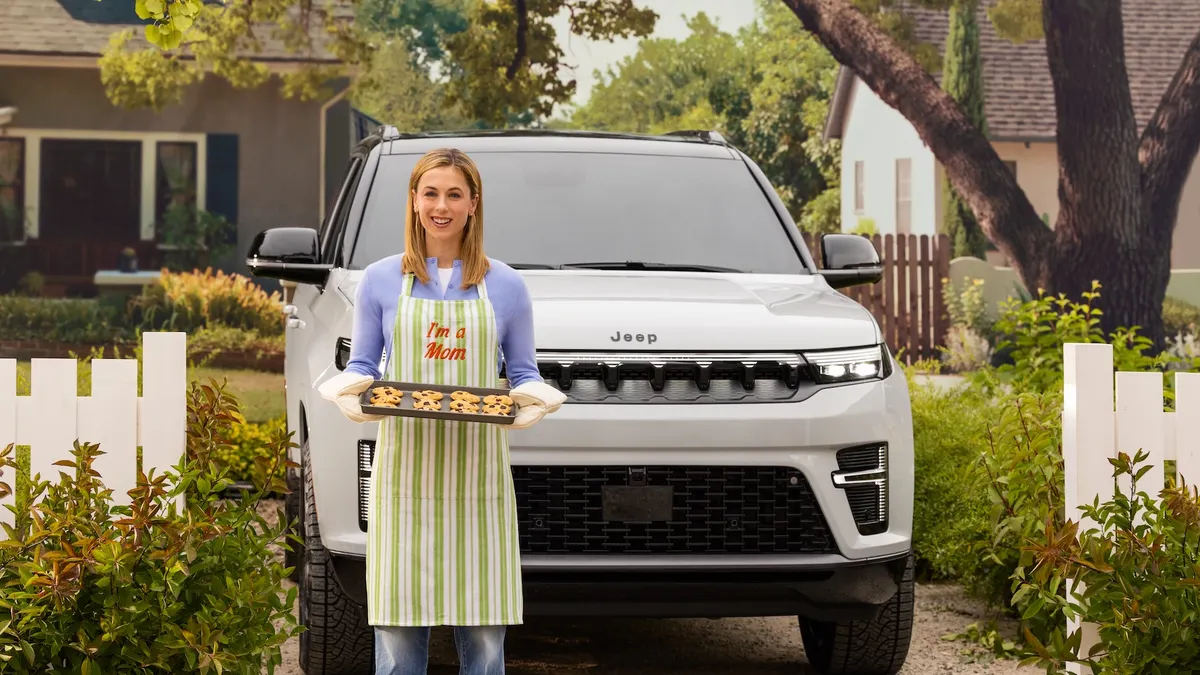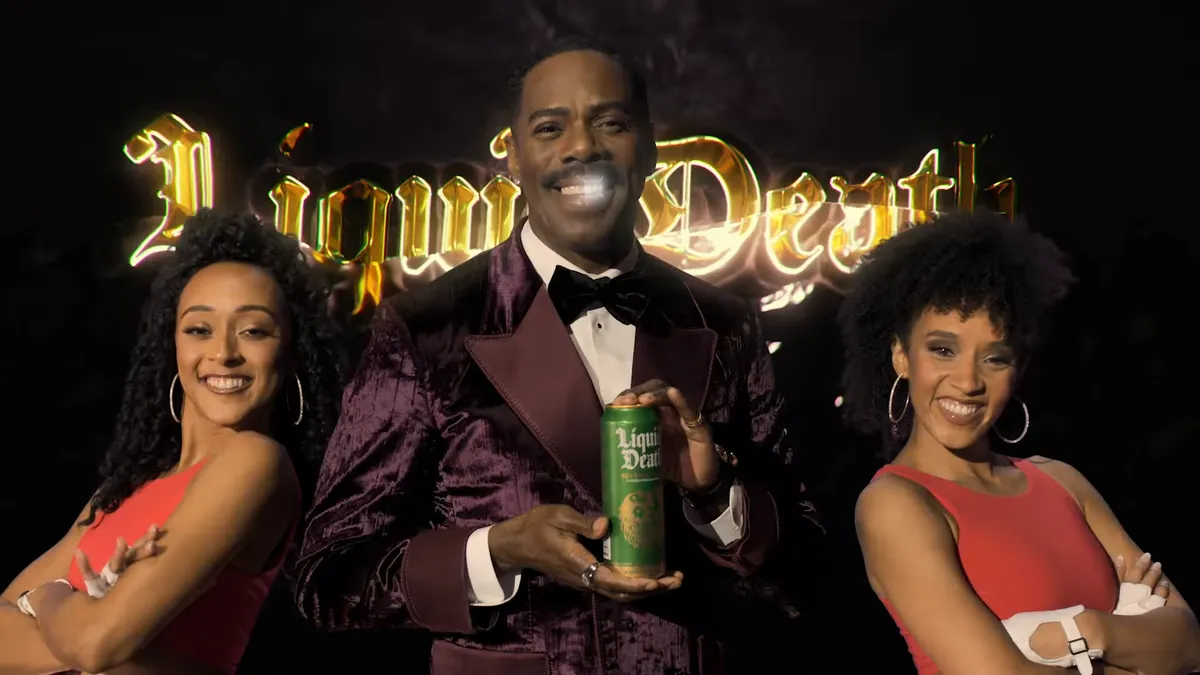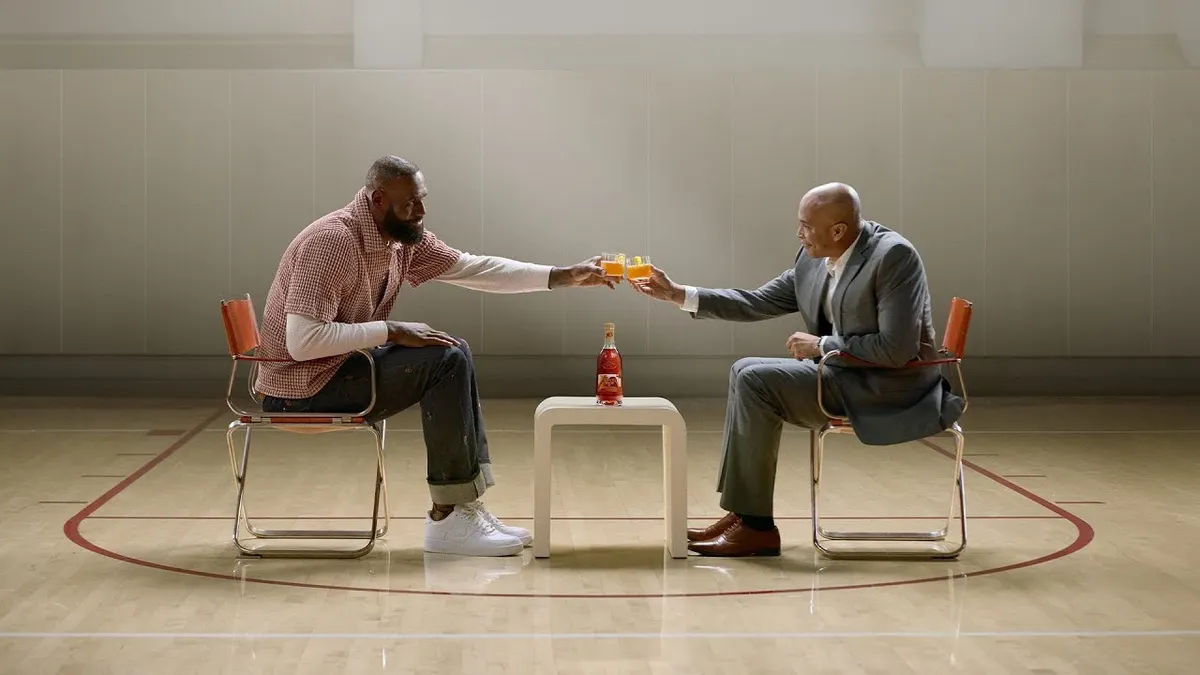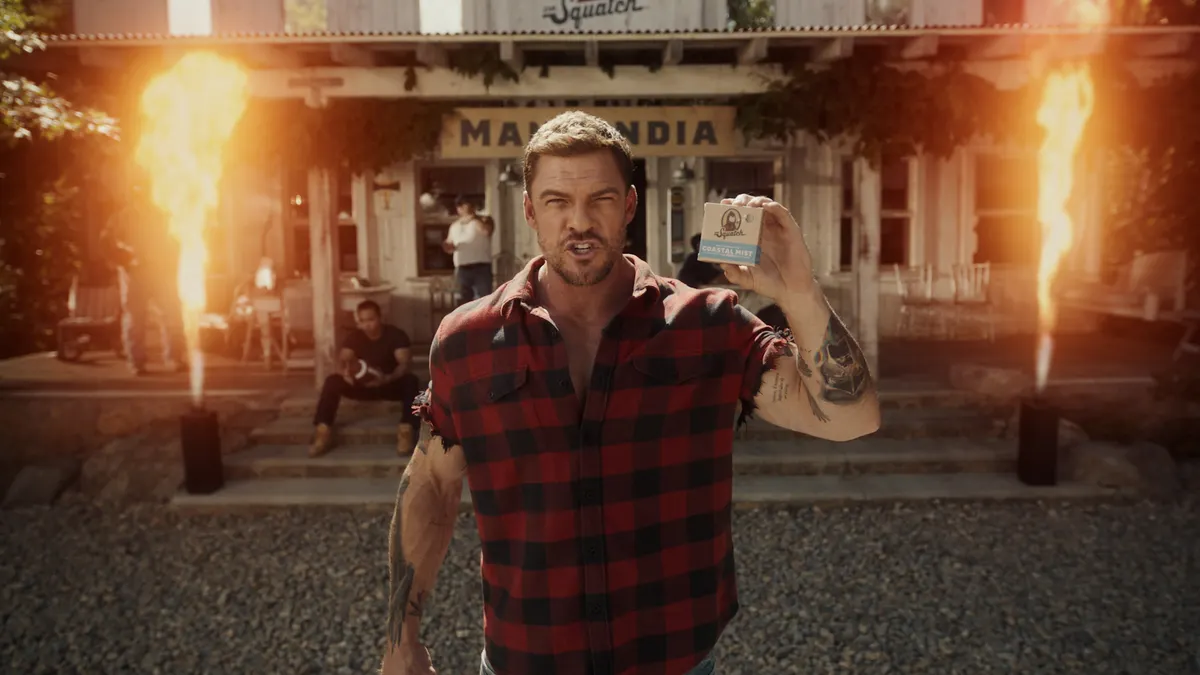Campaign Trail is our look at some of the best and worst new creative efforts from the marketing world. View past columns in the archives here.
Changes were afoot in the marketing world this week, with a rebrand stoking social media chatter, a notoriously sassy marketer showing its softer side and a gym promotion offering workout tips for getting in sort-of-good shape for summer:
IHOP teases name change and Twitter flips out
The rundown: On Monday, June 4, the International House of Pancakes — widely known as IHOP — used its social media channels to announce that the brand's name will change to IHOb on June 11. On Twitter, the news was revealed with a GIF depicting the "P" in the brand's logo flipping over to form a "b."
The restaurant chain didn't provide further details, leaving Twitter users to speculate what the "b" might stand for. Some of the possibilities suggested by users include bacon, breakfast and bankruptcy.
For 60 pancakin’ years, we’ve been IHOP. Now, we’re flippin’ our name to IHOb. Find out what it could b on 6.11.18. #IHOb pic.twitter.com/evSxKV3QmT
— IHOb (@IHOb) June 4, 2018
The results: By Friday morning, the announcement had been retweeted close to 11,000 times on Twitter and had racked up 16,000 comments and 27,000 likes, pointing to how Twitter users love a mystery and an opportunity to share their thoughts. IHOP wisely responded to many of the comments, giving the brand a chance to start a dialog with fans.
The brand's responses were playful, frequently replacing the "p" with a "b" in a variety of words. For example, telling users who demanded answers to have "batience" or telling others who imagined that the chain's signature menu item would disappear that "bancakes aren't going anywhere we bromise." When commenters speculated the "b" could stand for "bacon" or "breakfast," the chain responded with comments like "could b." For the most part, IHOP stayed away from less supportive suggestions like "bankruptcy."
With the stunt also being mentioned by several media outlets and interest in the mystery showing no signs of waning several days after the announcement, the chain is likely to have a large audience anticipating the answer to the mystery of what "b" stands when it is announced next week.
—Chantal Tode
Wendy's ditches the snark, burgers in health-focused TV campaign touting delivery
The rundown: Wendy's this week launched a summer TV campaign, but discerning fans of the fast-food chain might be wondering where the beef is. Neither burgers nor the brand's signature Frosty desserts make an appearance in the spots, according to Adweek, which instead spotlight a new "Berry Burst" chicken salad that includes fruit.
The colorful creative, available to view below, displays different emoji affirming that the ingredients in the menu addition are indeed fresh, and also touts Wendy's partnership with the online ordering service DoorDash for free delivery.
The results: Wendy's summer push around its Berry Burst salad might be small, but is potentially more interesting for what it doesn't include than for what it does. For one thing, the marketers' signature snark is absent from what are relatively plain, product-focused spots. Wendy's has built up a notorious reputation in recent years, mostly on Twitter but also in some of its TV advertising, for directly grilling its competitors like McDonald's over a lack of fresh beef in their burgers.
Wendy's switching things up to instead focus on the healthiness of its own offerings comes as McDonald's is adding more fresh ingredients to its menu, including for popular items like its Quarter Pounder. It's also possible the snarky shtick was simply becoming stale.
The ads spotlighting Wendy's DoorDash partnership additionally hammer home how delivery and digital ordering are a growing priority for quick-service restaurants as younger consumers, particularly millennials, favor convenience. DoorDash has been a strong partner for other brands in the category. Chipotle recently claimed that working with the digital service boosted weekly delivery orders by 667% — the type of results Wendy's is likely hungering for this summer.
—Peter Adams
Planet Fitness celebrates Father's Day with 'dad bod' survey, calendar
The rundown: Planet Fitness has commissioned a national survey to find out American attitudes about the "dad bod," that soft medium that's neither chiseled and muscle-bound nor out-of-shape and overweight. According to the survey, dad bod is on the rise, with 21% of adult men self-identifying that way in 2018 versus 18% in 2017. Seven in 10 people believe the body type is universally accepted, and 62% of men feel that having one has improved their lives. When it comes to the opposite sex, 65% of women would rather marry someone with a dad bod than with six-pack abs, and pluralities of women that have significant others with dad bods feel that the body type helps make them amazing fathers, providers and partners.
Accompanying the survey is the "How-to Guide for Working Your Dad Bod" calendar, which features humorous seasonal workouts like "The Dread Lift," "The Leafing Lunge" and "The Ripcord." The calendars are available on the Planet Fitness website for $10 each, with all proceeds benefiting Men's Health Initiative, an organization that works to empower boys and men to achieve optimal health and wellness.
The results: Planet Fitness has differentiated itself as the antithesis of the stereotypical gym by touting the "Judgement Free Zone," handing out free pizza, instituting an anti-grunting "lunk alarm" and only charging $10 or $21.99 for memberships. The low-cost, low-pressure model has worked: across its 1,565 locations, Planet Fitness has nearly 12 million members — a milestone the company believes the gym industry has never come close to seeing elsewhere.
This "dad bod" campaign — a beefed-up version of one the company launched last year — is certainly on-brand for Planet Fitness, where dad bods are the norm (if not a goal) of most of its male members. Plus, the charity calendar allows Planet Fitness to reinforce its health and wellness values and is yet another example of a brand pairing its marketing with a cause.
But while the campaign is body positive, its focus on what women see in men's dad bods excludes gay men who are also husbands and fathers (many of whom have or admire dad bods, too). That might open the company to backlash during Pride Month and at a time when representation in media and marketing is on the minds of consumers. An Ogilvy study found that consumers value LGBT-inclusive brands, and many consumers — especially millennials — will work to keep brands accountable on social media.
—Chris Kelly




















